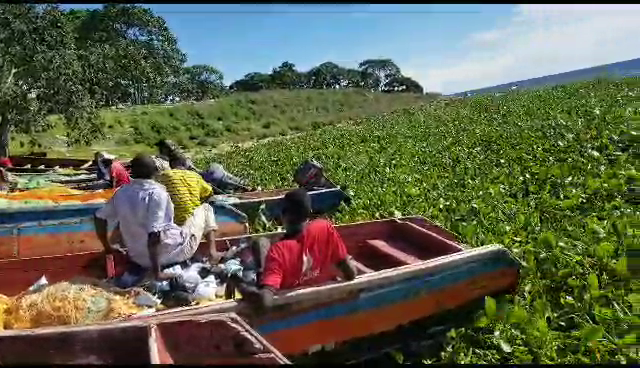Land is a no-win issue so why is Mr Museveni spending so much of his political capital on it?

Faced by a countrywide backlash against plans to ease the compulsory acquisition of private land for public projects, President Museveni has been on the road cajoling, explaining and trying to sell the proposed constitutional amendment.
From press accounts, the radio appearances are closely choreographed so it is hard to measure success. It is instead easier to see why many people are at best suspicious and at worst hostile to the idea. To do so we need to examine the base arguments. The core argument revolves around trying to address delays to government projects occasioned by lengthy court cases around (often inflated) compensation claims.
The amendment, according to its supporters, will put the project ahead of the court drama: The government pays its valuation into an account held by court and proceeds with the project while the legal fight proceeds.
The problem here is one of time, not money. The courts eventually agree on a figure, but they do so after a long and costly battle. The proposed amendment shifts the burden (of waiting for a resolution) to the landowner without solving it.
Faced with the prospect of losing their land then having to chase their money through the courts for many years without a guarantee of success, many smaller landowners are likely to take whatever is offered, however unfair. The smarter thing to do is to speed up the resolution of any disputes over compensation.
That said, land compensation disputes are not the only reason for delays in public projects. In 1997, government degazetted most of Namanve Central Forest Reserve to set up an industrial park. While there was an uproar from tree-huggers, there were no compensation claims to deal with. Yet 20 years later, the industrial park is still a work in progress. The same can be said of the Naguru Housing Estate, deserted many years ago for developers who never had money in the first place, Shimoni, and many other places.
The key question then is why President Museveni is bent on spending valuable political capital to promote an unpopular proposal? The more favourable view is that, say in the case of supporting sugarcane millers to get land in northern Uganda, the President means well, but the more he tries to help, the more he hurts the investors he is trying to help.
It is pretty straightforward: The landowners in northern Uganda will grow those crops or rear those animals they believe will give them the highest return on investment.
If it is sugarcane, they will plant sugarcane. If it is goats, they will have goats. If bananas are found to cure cancer and demand for them soars, trust the landowners to follow suit.
The large tracts of fertile, communally owned land in northern Uganda are ideal for large-scale mechanised agriculture and the President is right to discourage land fragmentation and partnership with large-scale agro-industrialists. Why then can’t the President see that the double-speak, of collaboration on the one hand and effective confiscation on the other causes confusion and suspicion?
Lawyers and experts on land matters have already pointed out that the law, as is, already gives the government the space to achieve the same objectives it is seeking through the proposed amendment.
A less charitable view that your columnist has heard whispered is that the amendment is a mere ruse to get a Constitutional Amendment Bill on the floor of Parliament, then introduce an amendment to the presidential age limit.
This could as well happen, but by the time of writing NRM MPs were about to unveil separate plans for a private member’s Bill with the same objective. What is clear is that there is a race at the grassroots over control of land. Buganda Kingdom, a major landowner, is quietly registering its tenants and giving them leases in exchange for acknowledging its ownership rights.
The Central Government has long allied itself with the tenants and if it gets its constitutional amendment, will have the power to dispossess landowners who stand in the way of ‘progress’.
Thus the wheel turns full circle. On the face of the problem – of lengthy compensations – is one for the judiciary to deliver justice faster, not for Parliament to amend the Constitution.
This, however, smirks of politics and nothing is as political as land. For all the political capital he is spending on this matter, Mr Museveni had better have a big prize in sight.
Mr Kalinaki is a journalist and a poor man’s freedom fighter. [email protected]
Twitter: @Kalinaki.




